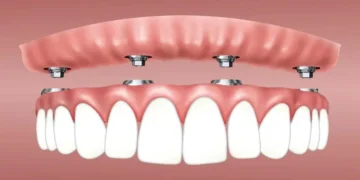Like any aspect of your health and well-being, taking care of your oral health is a must. People use their mouths to eat and talk every day. And for that reason, it’s no surprise that bacteria can develop in these areas of the body. Proper oral hygiene is key to suppressing the growth of bacteria and preventing them from becoming severe oral issues.
In the 2019 Global Burden of Disease Study, an estimate of about 3.5 billion people were found to be affected by oral diseases. These problems include tooth decay, gum diseases, oral cancer, and even oro-dental trauma. While most of these dental issues are preventable with the proper dental care, many people are unaware of the best oral health practices. To help you understand and execute them properly, below are answers to frequently asked questions about oral and family dental care.
Why Is Good Oral Hygiene Important?
Good oral hygiene refers to best practices that help protect your dental health. Keeping your teeth healthy can benefit you in many ways. For obvious reasons, it prevents oral discomfort and dental issues, most especially the ones that are severe or fatal. For some, it helps with speech issues. And for others, healthy teeth allow them not to be ashamed of smiling more often, which boosts their self-esteem.
Which Type of Toothbrush Is Suitable for Me?
Your toothbrush is one of the essential tools that help remove bacteria from your mouth. But to achieve the best results, you must find one suitable for your current dental status. Although most have the same features, there are different kinds of toothbrushes, and some are designed to address a specific need.
The first step to getting the right brush is visiting your dentist to get a checkup. In that way, they can help you determine which type of toothbrush suits you, particularly if you have a dental condition. These options include a manual or electric toothbrush, an orthodontic toothbrush, and an ionic toothbrush.
Once that’s done, select the particular size and pattern of the toothbrush head endorsed by your dentist. You also have to make sure that it has soft bristles as it is safer to use on your gums and enamel. The last step is to see to it that your toothbrush has a non-slip handle for better grip when brushing. It should have the American Dental Association Seal of Acceptance, as well, to ensure that it’s safety and effectiveness have been checked.
What Kind of Toothpaste Should My Family Use?
Another important thing for cleaning your teeth is toothpaste. It’s used with your brush to eliminate bacteria and food particles in your mouth.
One of the essential ingredients it should have is fluoride. It’s a mineral that protects your tooth enamel from the early stages of tooth decay. That’s why the ADA only approves of toothpastes with fluoride in it. An effective toothpaste should also have components like abrasives, detergents, humectants, antibacterial agents, preservatives, and flavors. If you’re looking for family-friendly toothpaste, you need to look for products that specialize in eliminating cavities and plaque.
Is Flossing Necessary?
Flossing is necessary for oral hygiene because it protects you from gum diseases. Despite brushing daily, there are areas in your mouth that are inevitably hard to reach, like in between your teeth and under the gumline.
It’s crucial to use dental floss in these areas as food particles may get stuck and form plaque—a film of bacteria. Once it hardens, it becomes tartar, which is not only more difficult to remove but also leads to periodontitis and tooth loss. To prevent that from happening, make it a habit to use floss daily.
How Often Should I Visit My Dentist?
The recommended frequency of visiting your dentist for a checkup is at least twice a year. But that will also depend on your varying dental condition. Some people are more at risk of developing dental diseases related to existing health conditions. If you are one of them, you may have to visit the dental office every three months or more, depending on the advice of your dentist. These types of people include:
People with diabetes
Smokers
Pregnant women
Cancer patients
Those with a weak immune response
Takeaway
Understanding these frequently asked questions is a good way to start learning about oral and family dental care. It also allows you and your loved ones to build a healthy dental routine as a precaution against serious oral issues that may develop in the future. If you need more advice on other queries about your oral health, make sure to reach out to the nearest dental professional.


 Home
Home









